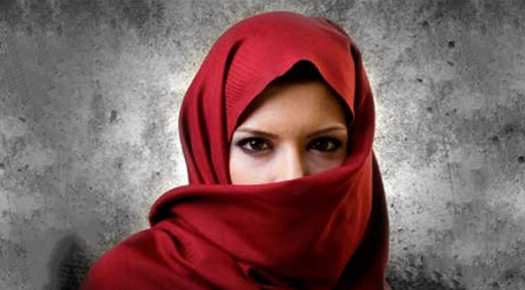
The veil has once again been brought to the forefront of an ongoing culture war in Egypt with a campaign being launched to encourage women to take off the hijab, followed by a severe backlash. A photo of a woman who claimed to have received a black eye after she decided to take off her hijab recently went viral on Facebook.
“Whoever wants to take off [the hijab], it doesn't come as easy as those who put it on,” said Nehal Kamal, an interior designer and vocalist from the band Gawy, on Facebook. “Don't kid yourselves when you say anyone can take off the hijab if they want.”
Kamal was on the receiving end of a flood of disapproving comments on the social networking site, where people praised the attacker who gave her a black eye.
“Well done to the guy that did this that is defending his religion,” said Islam Kamal, a commenter on Facebook. “I doubt your whole story is even true.”
“Good job to the guy that did this, whether it be your father, your brother or your husband,” said Salma Loma, another commenter.
“Kudos to whoever slapped you,” said Facebook user Khaledraw El Mariachi.
Some others stepped in to show unwavering support for Kamal in the midst of this entire hullabaloo.
“You are strong,” said Wafaa Mohamed.
“You are great in all cases,” said Sami Amin.
Kamal’s photo appeared in the wake of a public campaign that was launched by author Sherif al Shobashy, who wanted to empower women so they could take off their hijab if they so wished to.
“Ninety-nine percent of Egypt's prostitutes are veiled. But if you wear a hijab for fear of your father or brother, I am telling you take it off,” Shobashy had argued in a program hosted by Amr Abdel Hamid.
Shobashy’s critics obviously took offense to his comments, saying he was insulting women who preferred to wear the veil and not go outdoors without it. They staged a demonstration even against his campaign on May 1 at Tahrir Square.
“Insulting the majority that chooses to wear the headscarf and the minority that chooses not to is tantamount to insulting all of Egypt,” said Amr el Shobaki, a political commentator.
Despite the taboo associated with women who choose not to wear the veil, many Egyptians refuse to accept the intense societal pressure that women have to often face while deciding against it. According to Shobaki, no woman is ever forced to wear a veil in Egypt and it is a personal choice that most of them opt for.
“The Egyptian society has always rejected the imposition of the headscarf by force, whether by thugs that control certain neighborhoods, or by religious groups seeking power,” he said.
Women who decide against the veil in Egypt however have to frequently expose themselves to increased bullying and social isolation, as the choice is often wrongly associated with promiscuity.
“Women are not free to wear what they want and I'm glad this topic [has been] brought to public discussion these days,” said Dalia Abd El Hameed from Egyptian Initiative for Personal Rights (EIPR) in an interview.
While women belonging to the upper class are often criticized for adorning a hijab, Hameed explained how women belonging to the lower classes are usually expected to wear one, especially after a certain age.
“If not, she could suffer dire consequences in school, at home, or in the street,” she added. “These are layers of authority imposed on women's bodies, and that makes talking about how free women are to dress how they want relatively meaningless. In some cases, physical violence could be the price of challenging these authorities.”
Photo Credits: The Chicago Monitor

